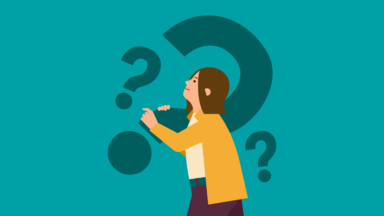
Living with insomnia can feel like a never-ending battle, affecting your nights and your quality of life during the day. If you’re searching for a way to overcome insomnia, you may have heard about Zolpidem. In this blog post, we’ll explore the use of Zolpidem for insomnia, its potential benefits, and essential considerations. If your GP has prescribed Zolpidem as a solution for your sleepless nights, keep reading to find out more.
Understanding Zolpidem
Zolpidem is a medication categorised as a non-benzodiazepine hypnotic. It is primarily prescribed for the short-term treatment of insomnia, particularly when other treatments haven’t worked. It helps you fall asleep more quickly and makes you less likely to wake up during the night. It works by affecting a calming chemical in your brain called gamma-aminobutyric acid (GABA).
Zolpidem is available in tablet form in 5mg or 10mg doses. Once you take it, it takes around one hour to work.
Using Zolpidem for Insomnia
Zolpidem is often prescribed when insomnia has become disruptive, affecting your overall quality of life. It can help you fall asleep faster, stay asleep longer, and improve your overall sleep quality.
Benefits of Zolpidem for Insomnia
Fall Asleep Faster: Zolpidem helps you fall asleep more rapidly, reducing the frustrating hours spent awake in bed.
Stay Asleep Longer: It minimises the frequency of nighttime awakenings, helping you stay asleep throughout the night.
Improved Total Sleep Time: Zolpidem contributes to longer and more restful sleep, which is essential for your overall well-being.
Important Considerations When Taking Zolpidem
It’s important to be aware of crucial considerations when using Zolpidem for insomnia:
Prescription Requirement: Zolpidem is a prescription-only medication. It is not available over-the-counter and must be obtained through your GP.
Short-Term Use: Zolpidem is typically prescribed for short-term use, often for two to four weeks. Using it for longer than this can mean that your body gets used to it, making it less effective and meaning you may start to rely on it to get to sleep.
Potential Side Effects: Common side effects of Zolpidem may include drowsiness, dizziness, and a bitter or metallic taste in the mouth. You should be cautious when driving or using machinery while taking Zolpidem.
Tapering Off: When it’s time to stop taking Zolpidem, your GP will help you do this gradually to avoid withdrawal symptoms.
Complementary Approaches: Combining Zolpidem with non-drug options, such as maintaining good sleep hygiene practices, lifestyle adjustments, and Cognitive-Behavioural Therapy for Insomnia (CBT-I) can lead to more effective management of insomnia. CBT-I is a highly effective and non-drug treatment for insomnia. It helps change negative thought patterns and behaviours related to sleep. Sleepio is a CBT-I treatment that works with you to develop a personalised insomnia treatment plan, empowering you to challenge negative thought patterns, establish healthy sleep habits, and enjoy restful nights of sleep.
In summary, Zolpidem offers hope for people struggling with insomnia. Its potential benefits include getting to sleep faster, staying asleep longer, and spending more time asleep overall. However, it is crucial to speak with your GP when considering Zolpidem for insomnia, be aware of prescription requirements, understand potential side effects, and adhere to the short-term use recommendation.

Here’s our latest

Why Am I Tired All The Time?
Feeling tired is something we all experience from time to time, but what happens when it becomes a constant companion?…

Sleep After a Stroke: Stroke-Induced Sleep Disorders
Recovering from a stroke is a journey that comes with various challenges, and one of the often overlooked issues is…

Chronic Fatigue Syndrome and Sleep
A good night’s sleep should leave you feeling refreshed, but for some people, chronic fatigue syndrome and insomnia turn this…


